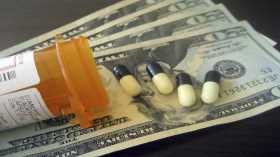
Source: Composite image by G_marius
Homeopathy has long been used to treat certain diseases. Some claim it does work, other that it is a pseudoscience. Do you think it is effective?
There is still no consensus among the medical doctors and scientists on the effectiveness of homeopathy. Some argue that homeopathy does work and really helps curing or mitigating the effects of some diseases. Homeopathic supplements are often used to lose weight and reinforce health in people that don't suffer from any particular disease. Others believe that it's just a placebo. It is one of the controversial debates in health, such as vaccines or mercy killing.
Homeopathy is an alternative medecine, a system of therapeutics founded in 1796 by the German physician Samuel Hahnemann, based on the principle of similia similibus curantur ("like cures like"), with the underlying logic that our bodies know what they are doing and that symptoms are simply the way in which it takes action against diseases. Thus homeopathy is based on the idea of prescribing patients (sick people) substances that would cause on healthy people the same symptoms of the disease being treated. Thus the homeopathic medicine acts as a stimulus aiming at triggering a natural vital reaction.
Some doctors use homeopathy and believe it's a real science with proven results. However the majority of medical professionals and pharmaceutical companies state that there is very little evidence on homeopathy effectiveness and often define it as a pseudoscience. What do you think? Does homeopathy work? Do you think it's good for you?
If you change your mind, you can change your vote simply by clicking on another option.
New to netivist?
Join with confidence, netivist is completely advertisement free. You will not receive any promotional materials from third parties.
Join the debate
In order to join the debate you must be logged in.
Already have an account on netivist? Just login. New to netivist? Create your account for free.
You are viewing a filtered list of comments. Click the button above to view all comments.
True homeopathic remedies contain absolutely no active ingredient whatsoever. They tend to be diluted to levels of 30c to 100c, which means one hundredth to the power 30 or 100. If you work out the physics, these dilutions lead to the practical impossibility of their being even a single molecule of the active ingredient remaining. Also, the actual basis of their action is highly primitive -- the idea originally being that a toxin which causes a symptom will treat that symptom if given in small doses, and if succussed (shaken vigorously) during the manufacturing process, and that the treatment becomes more powerful the greater the dilution. These aspects of homeopathy have been found to be baseless. Originally, homeopathy became popular because it was safer and more effective than the leading treatments of the time, such as blood letting. I recommend those interested read this brief history: http://www.ncbi.nlm.nih.gov/pmc/articles/PMC1676328/ The major problem with homeopathy is that (a) people sometimes stop using their prescribed treatments in favour of using homeopathy, with dire consequences, because a homeopath has advised that their treatment can successfully combat serious illness, and (b) that there is a publicly funded NHS homeopathic hospital, diverting important funding from well-evidenced treatment. A major problem with homeopathy is that it is expensive, when you could of course replicate it's placebo effect with a long consultation time, listening to the patient and understanding their concerns, some lifestyle advice and a sugar pill.
Join the debate
In order to join the debate you must be logged in.
Already have an account on netivist? Just login. New to netivist? Create your account for free.


















